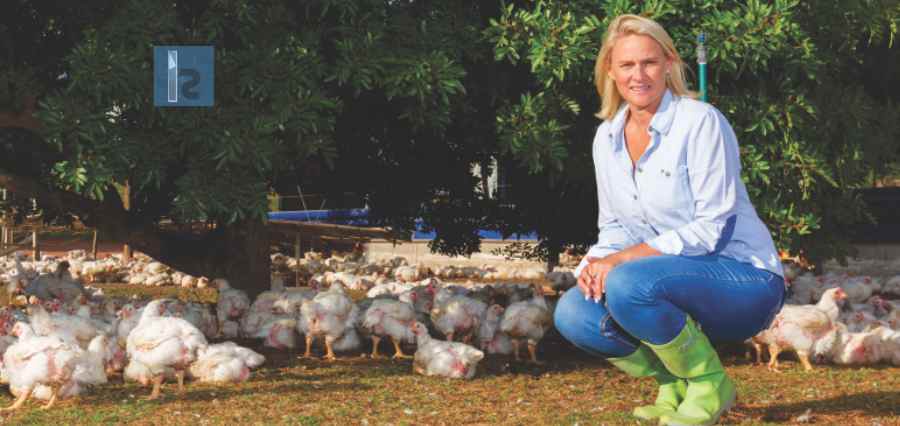A 2007 survey by Smith and Wiseman found that 59 per cent people, of those surveyed, in sub-Saharan Africa(SSA) were suffering from severe energy deficiency. Children under the age of five showed signs of stunting, wasting and slow mental development in rural areas of SSA. Pregnant and lactating women were found vulnerable towards diseases arising due to inadequate dietary energy and protein.
Providing them chicken meat and eggs—considered the best source of quality protein—was suggested as efficient and healthy. They are not just high-quality protein, but also provide important vitamins and minerals, are high in lutein which lowers the risk of cataracts and macular degeneration, and also the cheapest of all livestock meats.
As a result, poultry developed as a major industry in developing countries. The industry set-up and produce are relatively inexpensive, widely available, provides employment, has a less detrimental impact on the environment than other livestock, and uses less water.
However, the condition in which the poultry is kept in these farms has always been a cause of concern. The birds are placed in a closely packed cage most of the time, are fed inadequately and sparsely, and injected with antibiotics and hormones to keep them disease-free and increase their net weight respectively.
“We work with nature to keep our birds healthier and happier, which in the long run also improves the flavour and texture of the meat.”
All these conditions, while increasing the quantity, adversely affect the quality of the produce. As a result, instead of providing nourishment to the human body, gives empty calories and in acute cases, causes harm.
Turning to Nature
In 1997, concerned about her family’s well-being due to increasing use of processed and chemically treated food, Jeanne Groenewald reached a point where she decided that she could no longer feed her family any mass-produced meat.
Born and brought up on a farm in Wellington, Jeanne started experimenting with free-range chickens. The free-range method of raising poultry demanded that chickens, for at least some part of the day, are allowed to roam freely outdoors and is not confined 24 hours a day.
Jeanne recalls, “When I started, there was no one else farming free-range, so I had to teach myself, and learn by trial and error because there were no mentors in the field. I started with about 100 chickens that I reared in my backyard, allowing them to forage freely. I fed them only high-quality, all-grain foods, without animal by-products like fish or poultry meal.”
The result was more than Jeanne could have imagined. Smitten by the amazing taste of the chicken, her friends help spread the word and Jeanne started receiving orders for her chicken. “Between 1998 and 2000 the business grew from 100 chickens every six weeks to 2000 chickens per week,” says Jeanne.
To meet the growing demand, Jeanne and her family converted existing outbuildings to rear the chickens. They first built dedicated houses, but soon the chicken outgrew the space available. To accommodate the rapid growth, Jeanne approached three contract growers and helped them build similar houses to accommodate 15000 birds each. She also established the Elgin Poultry Abattoir in Grabouw, and today supplies free-range chickens to leading South African retailers, selected delis and some of the Cape’s top restaurants.
The secret to Good Chicken
Jeanne makes sure that the birds on her farm and the contractors’, lead as natural a life as possible. Chicks are placed indoors for the first 10 days in summer and 14 days in winter at a stocking density of 15 birds/m2, after which they range on natural vegetation during the day at a stocking density of a mere 5/m2.
The farm area is covered in lush vegetation with trees and shrubs providing a natural shade during the day to forage under and branches to perch on. The birds are also allowed to sleep properly at night from four days old. The whole environment makes for a stress-free living which Jeanne believes is crucial to the birds as well as business.
“Without stress, a bird’s own internal immune system becomes stronger, which allows it to fight most disease challenges it is exposed to. The fact that bird mortality on all our farms averages 3% is proof that this farming philosophy is paying off,” says Jeanne. The chickens at Elgin are reared according to humane farming practices and are given no antibiotic growth promoters (AGPs) which makes them drug-free as well.
The Challenges
Raising Free Range Chickens at Elgin has its share of challenges. Diseases are always a threat lurking around the corner. But being Free Range, Jeanne doesn’t want to depend on antibiotics. Instead, her focus is on increasing the immunity of the birds to help them fight diseases.
To tackle diseases and boost the immunity, she uses high quality, all-grain diet for chickens, and also get them vaccinated for Coccidiosis, Newcastle disease and infectious bursal disease (IBD). When a chicken falls ill, her team works very closely with the avian vet. A change in temperature is another challenge as the houses aren’t climate controlled yet. Here again, they make use of natural ways to protect the chickens against extreme climate.
The side-effect of these practices is that the production cost shoots up. Free-range chicken is expensive to produce thus increasing the cost to consumers. She adds, “Consumers must accept they are paying a premium for better quality, more nutritious food.”
Looking Forward
20 years into the industry, Jeanne is yet to register a slowdown in the demand of free-range chickens. Her plans, as for the next few years, is to start producing more value-added products. “The growth in the industry has been stable. I think the selling points for free-range chicken are health and animal welfare issues,” concludes Jeanne.


